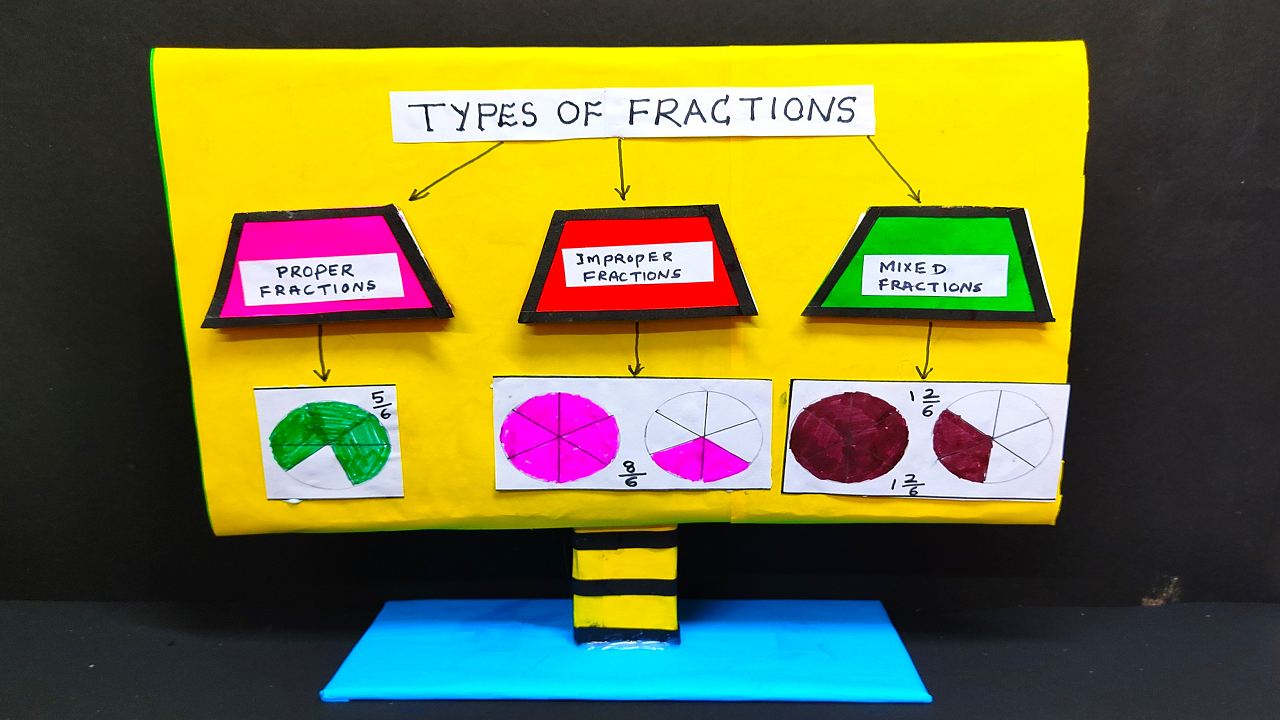Creating a math working model for different types of fractions can be an engaging and educational project.

Here’s a simple and easy DIY (Do It Yourself) project to demonstrate various types of fractions using everyday materials:
Materials Needed:
- Colored paper or cardboard
- Scissors
- Glue or tape
- Markers
- Ruler
- Popsicle sticks or straws
Types of Fractions to Represent:
- Proper Fractions: Fractions where the numerator is smaller than the denominator.
- Improper Fractions: Fractions where the numerator is equal to or greater than the denominator.
- Mixed Fractions : Whole numbers combined with proper fractions.
Steps to Create the Math Working Model:
Step 1: Cut and Label Fractions:
- Cut out rectangles or squares from colored paper or cardboard to represent fractions. Use different colors for visual appeal.
- Label each fraction with a numerator and denominator.
Step 2: Create Whole Numbers:
- Cut out larger rectangles or squares to represent whole numbers.
- Label these with whole numbers.
Step 3: Proper Fractions:
- Take a fraction piece with a smaller numerator and attach it to a cardboard.
- Label it as a proper fraction.
Step 4: Improper Fractions:
- Take a fraction piece with a numerator equal to or greater than the denominator.
- Attach it to cardboard .
- Label it as an improper fraction.
Step 5: Mixed Numbers:
- Combine the whole number pieces with the proper fraction pieces to create mixed numbers.
- Attach them to cardboard .
Step 6: Arrange and Display:
- Arrange your fraction pieces on a flat surface to display the different types of fractions.
- Use index cards or small cards to label each type for clarity.
Step 9: Explanation:
- Prepare a brief explanation or presentation to accompany your math working model.
- Discuss each type of fraction, how to identify them, and basic operations involving fractions.
This DIY math working model provides a hands-on and visual representation of different types of fractions, making it an effective Teaching-Learning Material (TLM) for understanding fundamental concepts in mathematics.

